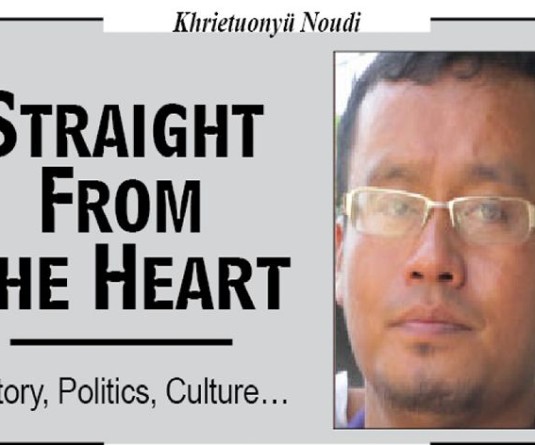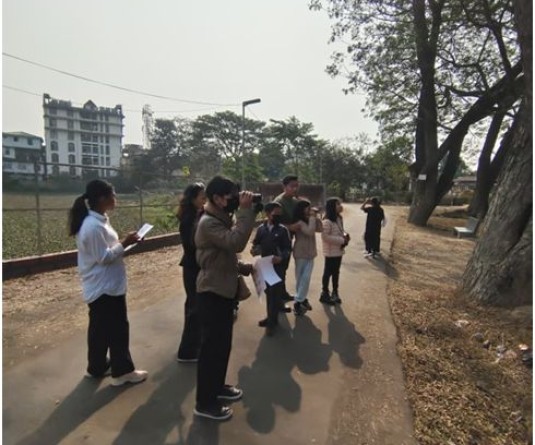
Tia Jamir
We continue with our exploration dealing with the birth narratives according to Matthew and Luke. First, we revisit what we have been talking about in our previous essay by adding new nuances. The coming of the Messiah in the ancient literatures, hopes, and expectations means world renewal, re-creation, and transformation beyond its current scenarios. Hence, The Imperial Kingdom of Rome provides a key contextual element in seeing the Christmas birth story as they are meant to be.
Previously, we have seen that Roman created the ground reality in Jesus’s milieu. However, what Rome was doing is not entirely a new thing. Rome inherited from Greece that history would involve five great ages or kingdom. The Assyrians were the first of all races to hold power, then the Medes, after then the Persians, and then the Macedonians, and the fifth kingdom, the last climactic kingdom the Roman Empire. Now we can get a sense of Roman pride and imperialism when Matthew announced that Jesus was the newborn Davidic Messiah and that, in him, God had appointed a new “King of the Jews” instead of that Rome-appointed Herod the Great (2:2). Or when Luke rejoiced that Jesus was the newborn son of God and that, in him, God had “shown strength with his arm . . . scattered the proud in the thoughts of their hearts . . . brought down the powerful from their thrones, and lifted up the lowly . . . filled the hungry with good things, and sent the rich away empty (1:51-53).
To recap further, historically speaking, after many long years (centuries) of wars, civil wars often under brutal war lords, the Roman people finally had “peace,” when the last man standing was the last warlord Octavian—the adopted son of Julius Caesar. The victorious Octavian would soon be entitled in Latin Augustus, the “One who is Divine,” or in Greek Sebastos, the “One who is to be worshipped.” Under Augustus, Rome became an imperial monarchy. Rome came to possess social, economic, military, and cultural power over any and everyone. People that celebrated the birth narratives of Matthew and Luke lacked any vestige of military, economic, or political power. However, they fought ideology with ideology or more accurately theology with theology. The titles of the Roman emperor Caesar Augustus were aptly named: Divine, Son of God, God, God from God, Lord, Redeemer, Liberator, and Savior of the World. The human Augustus was divine incarnate. To use any or all of them to the newborn Jesus would be either low lampoon or high treason. Rome was not laughing. In fact, Rome aimed her entire arsenal against Jesus and his followers.
We have also talked about the imperial propaganda and conceptualizing the imperial mighty Roman Empire. Rome had four successive elements in building their glorious Empire. It neatly tied up their imperial theology—religion, war, victory, and peace. They worship their gods, and then went to war with their assistance, they get victory with their help, and the vanquished obtain peace from their benevolence. For Augustus and Rome, peace was the objective, but always peace through victory, peace through war, peace through violence. This is the way of the empire(s). Do you think this is the way of Jesus’s Kingdom?
The (Eschatological) Kingdom of God
The adjective eschatological is a term in biblical scholarship referring to God’s vision for the fifth or the final kingdom on earth. It has to do with the program of how God will rule the world, when he (Christ) returns as the Cosmic King. The eschaton denotes earth’s last and final kingdom (Daniel 7). Eschatology is not about the destruction of the earth, but about its transfiguration, not about the end of the world, but about the end of evil, injustice, violence, and imperialism. That is, the end of the empires—the world as we know it.
A Jewish text from the age of Augustus, a text contemporary with the birth of Jesus called the Sibylline Oracles provides us with a helpful context. This text is a series of fictional prophecies that Judaism and then Christianity borrowed from Rome and then used it against them:
The earth will belong equally to all, undivided by walls or fences. It will then bear more abundant fruits spontaneously. Lives will be in common and wealth will have no division. For there will be no poor man there, no rich, and no tyrant, no slave. Further, no one will be either great or small anymore. No kings, no leaders. All will be on a par together (2.319-24).
This ultimate vision involves a family not democratic system of government. God is like the Father who must provide equally for all the family of the earth—equally, meaning enough for everyone always. We can now see that the fundamental difference between those divergent visions of earth’s final kingdom is not about ends, but about means. The imperial Rome had as its means program peace through victory. The eschatological kingdom of God has its program peace through justice.
What do all of these mean?
Everything! When the great day for the earth’s divine transformation arrives, what would God do with the current great empire of that time? The Bible—the Jewish Scriptures and the Christian Scriptures—gives two diametrically opposite answers to this very basic question. According to Micah, God would violently destroy the current great empire (5:15; 7:10, 16-17). Micah’s violent text comparatively speaking gives us the PG version. Complete annihilation in a Great Final Battle at the symbolic place of Megiddo—the Hebrew term is Har Megiddo, hence our English term “Armageddon” as narrated in the Christian Bible, the Apocalypse or Revelation. Revelation provides a dark theme and bloodshed: where “the wine press was trodden outside the city, and blood flowed from the wine press, as high as a horse’s bridle, for a distance of about two hundred miles” (14:20). Imagine swimming in a 5 or 6 feet high and 200 miles long swimming pool filled with blood.
There exists however, another version of what happens with the Second Coming of the Lord. This includes a great conversion in a Great Final Feast at the symbolic place of Mt. Zion. All the nations convert, not to Judaism, but to the God of justice and peace. After the entire violent battle scenes Micah also echoes this conversion episode, which Isaiah also refers almost verbatim—except for the final verse in Isaiah 2:2-4/Micah 4:1-3. Along with the signing of treaties of no more wars among the nations there will also be a great feast with the very best food and drinks (Isa 25:6-8).
As we can see, there are two utterly divergent descriptions of God’s final solution to the existence of imperialism, one violent and the other non-violent, one massacre in a Great Final Battle and the other conversion at a Great Final Feast. Which one, do you think, become the paradigmatic theme of the first Christmas stories? When Luke’s angels announce “peace on earth” to the shepherds at Bethlehem, is it peace through victory or peace through justice? In other words, which refrain are the New Testament writers echoing?
The “Coming” and “Birthing” of the Messiah
Jesus was born just before the death of Herod the Great in 4BCE. With the demise of Herod there were popular uprising all over the Jewish villages and towns, and some of them had clearly messianic overtones—violent attempts to replace an unjust and Rome-appointed tyrant with a just and God-appointed ruler. Rome had no first-rank legionary forces (elite), only second-rank auxiliary troops stationed in Israel. So, in order to put down those rebellions, the Syrian legions guarding the Euphrates frontier against the Parthian Empire—Rome’s only serious threat—had to strip that protective screen and leave their northern bases. The legions came to make an example, once and for all.
There was among those rebellions, one at Sepphoris, capital of Galilee, just a few miles north of Nazareth. There, according to Josephus’s Jewish War, a rebel named Judas “raised considerable body of followers, broke open the royal arsenals, and, having armed his companions, attacked the other aspirants to power” (2.56). Rome had three legions in Syria; the governor, Varus, sent the first one straight to the gut of Judea and then the remaining two southward to encircle any fleeing rebels or civilians. The total number of elite fighting forces included 18, 000 men accompanied by 2000 auxiliary cavalry, and 1500 auxiliary infantry. Such lethal force against a people without a standing army shows Rome’s strategic or preemptive strive at the Judaic Messianic belief and contenders. As Varus took his main force south, he “at once sent a detachment of his army into the region of Galilee adjoining Ptolemais, under the command of his friend Gaius; the latter routed all who opposed him, captured and burnt the city of Sepphoris and reduced its inhabitants to slavery” (2.68). This force under Gaius wiped everything in their path without any distinctions or mercies.
So, what do you think happened to small adjacent villages when the legions, the best military machine attacked defenseless villages and small towns? More precisely, what do you think happened to Nazareth in 4BCE? Perhaps there was a timely flight to hiding places well known to the locals, or its males were murdered, its females raped, and its children enslaved. If they escaped, when they returned what little they had were burnt to ashes. Nothing good comes out of Nazareth!
Jesus grew up in Nazareth after 4 BCE, so this massacre was a daily reality for Jesus. Perhaps this was their darkest day. The events of 4BCE in the little town of Nazareth shaped, formed, and formulated the Judean and Galilean’s psyche and outlook. They remember the marching boots of the Roman soldiers. The echo of the Roman onslaught was not some legendary campfire stories in the distant past, the stories were alive, and the wound was fresh. The legions were “real time” soldiers who had devastated Nazareth’s backyard. What kind of stories did Mary tell Jesus about what happened in their hometown? This is when we should use our (sanctified) imaginations as opposed to imaginary fairy tales. Imagine. Mary perhaps took Jesus up to the top of the Nazareth ridge from where they can see Sepphoris, which is only about an hour and a half walk (about four miles), gleaming white on its green hill. Mary would have told Jesus that we knew they (the soldiers) were coming, but your dad was not home. Joseph was a mason by trade; meaning his job took him to Sepphoris where all the rebuilding and new constructions required man like Joseph. Imagine Mary recounting her emotional turmoil and eagerly gazing her eyes toward the city only to hear and see the impending doom, the Roman legions. Can you see Mary’s pain? Perhaps, this is the day when Joseph died. Such stories shaped Jesus’s childhood memories—stories dealing with loss, insecurity, and meekness. Joseph’s family survived and lived, but like every Jewish historical epoch, they had to deal with one nagging questions: Why did God not defend those who believed in God? Matthew and Luke answer this question beginning with their birth narratives.






